Hongyi Gu
Teacher Demonstrations in a BabyLM's Zone of Proximal Development for Contingent Multi-Turn Interaction
Oct 23, 2025Abstract:Multi-turn dialogues between a child and a caregiver are characterized by a property called contingency - that is, prompt, direct, and meaningful exchanges between interlocutors. We introduce ContingentChat, a teacher-student framework that benchmarks and improves multi-turn contingency in a BabyLM trained on 100M words. Using a novel alignment dataset for post-training, BabyLM generates responses that are more grammatical and cohesive. Experiments with adaptive teacher decoding strategies show limited additional gains. ContingentChat demonstrates the benefits of targeted post-training for dialogue quality and indicates that contingency remains a challenging goal for BabyLMs.
Non-Cartesian Self-Supervised Physics-Driven Deep Learning Reconstruction for Highly-Accelerated Multi-Echo Spiral fMRI
Dec 09, 2023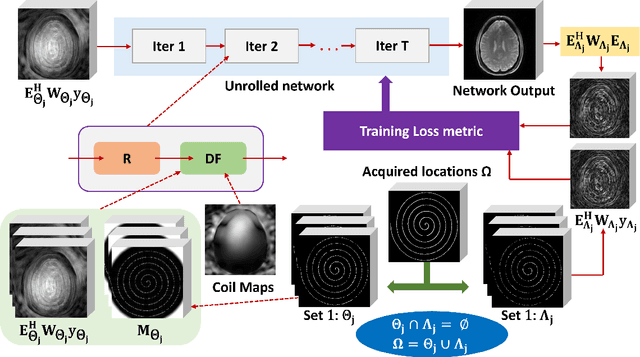
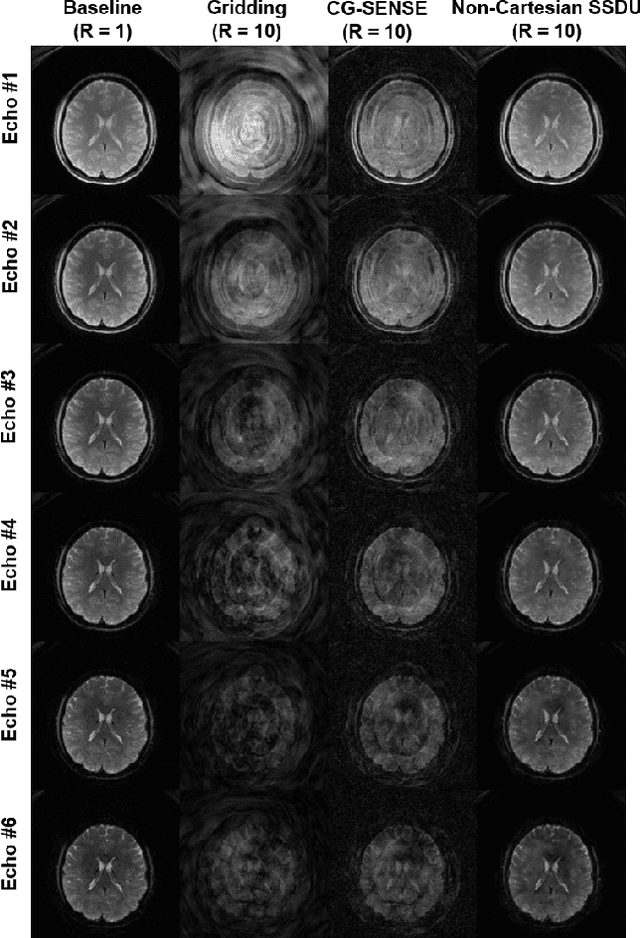
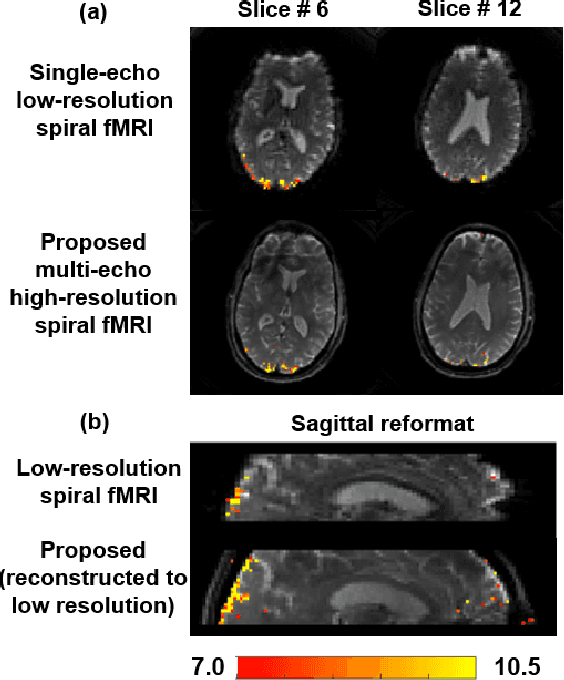
Abstract:Functional MRI (fMRI) is an important tool for non-invasive studies of brain function. Over the past decade, multi-echo fMRI methods that sample multiple echo times has become popular with potential to improve quantification. While these acquisitions are typically performed with Cartesian trajectories, non-Cartesian trajectories, in particular spiral acquisitions, hold promise for denser sampling of echo times. However, such acquisitions require very high acceleration rates for sufficient spatiotemporal resolutions. In this work, we propose to use a physics-driven deep learning (PD-DL) reconstruction to accelerate multi-echo spiral fMRI by 10-fold. We modify a self-supervised learning algorithm for optimized training with non-Cartesian trajectories and use it to train the PD-DL network. Results show that the proposed self-supervised PD-DL reconstruction achieves high spatio-temporal resolution with meaningful BOLD analysis.
Accelerated MRI With Deep Linear Convolutional Transform Learning
Apr 17, 2022
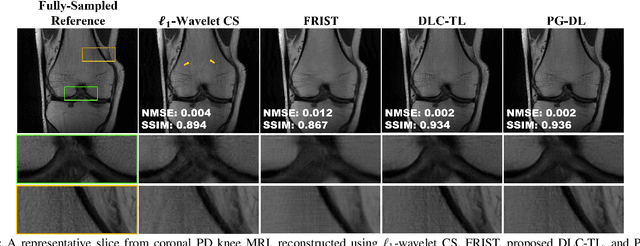
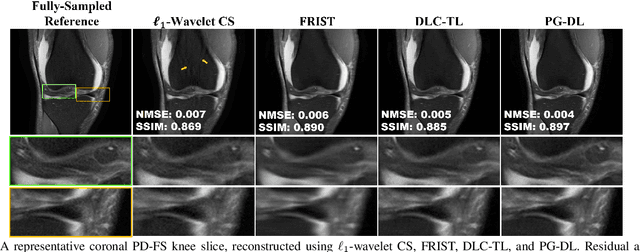
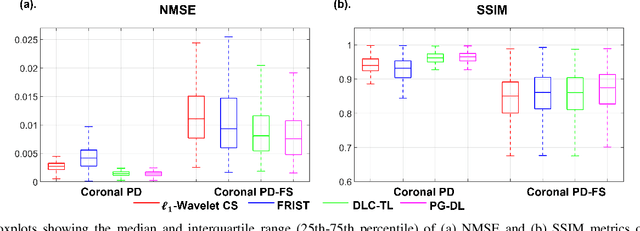
Abstract:Recent studies show that deep learning (DL) based MRI reconstruction outperforms conventional methods, such as parallel imaging and compressed sensing (CS), in multiple applications. Unlike CS that is typically implemented with pre-determined linear representations for regularization, DL inherently uses a non-linear representation learned from a large database. Another line of work uses transform learning (TL) to bridge the gap between these two approaches by learning linear representations from data. In this work, we combine ideas from CS, TL and DL reconstructions to learn deep linear convolutional transforms as part of an algorithm unrolling approach. Using end-to-end training, our results show that the proposed technique can reconstruct MR images to a level comparable to DL methods, while supporting uniform undersampling patterns unlike conventional CS methods. Our proposed method relies on convex sparse image reconstruction with linear representation at inference time, which may be beneficial for characterizing robustness, stability and generalizability.
 Add to Chrome
Add to Chrome Add to Firefox
Add to Firefox Add to Edge
Add to Edge